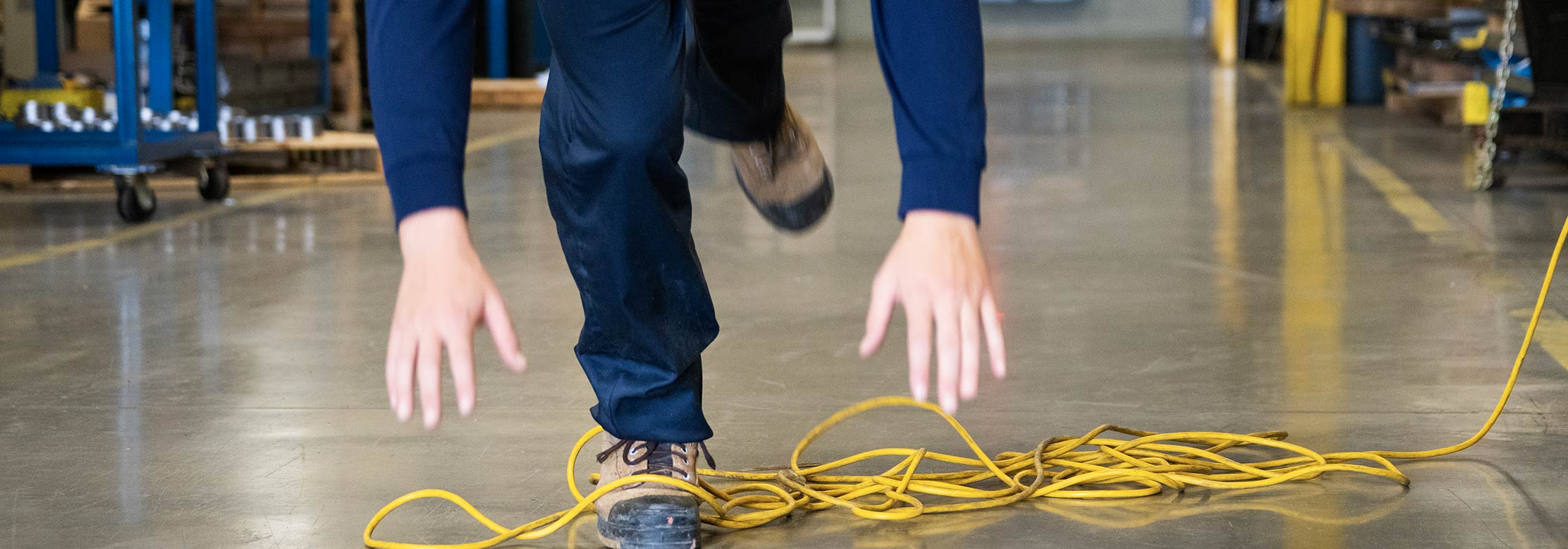Surgery is meant to improve health, not make it worse. Yet, every year, patients in South Carolina suffer harm due to preventable mistakes in the operating room. Whether due to an error during surgery, a miscalculation with anesthesia, or a failure to address complications, the consequences can be severe—physically, emotionally, and financially.
While not every complication results from negligence, some errors exceed acceptable risks. When this happens, victims of surgical errors and medical negligence in South Carolina may have legal options to recover damages for medical bills, lost income, and suffering.
This guide, written by Morris Law Accident Injury Lawyers, explores how surgical malpractice happens, what victims can do, and how legal action can provide financial relief. If you or a loved one has suffered due to a preventable mistake, understanding your rights is the first step toward seeking accountability. Reach out to an experienced medical malpractice lawyer in South Carolina today.
What Qualifies as Surgical Malpractice?
Not every surgical complication is grounds for legal action. However, surgical malpractice occurs when a medical professional fails to meet the standard of care, resulting in preventable harm. These cases often involve errors that a trained and careful medical provider should not have made.
Common Examples of Surgical Errors
Errors in the operating room can have devastating consequences. Some of the most frequently reported mistakes include:
- Wrong-site surgery – Operating on the incorrect body part or performing the wrong procedure.
- Retained surgical instruments – Leaving items such as sponges or clamps inside a patient’s body.
- Anesthesia errors – Administering too much or too little anesthesia, leading to serious complications.
- Damage to surrounding tissues or organs – Cutting or puncturing unintended areas during surgery.
- Unnecessary procedures – Performing surgery on a patient who does not need it.
- Failure to monitor post-operative complications – Neglecting to detect infections, blood clots, or internal bleeding.
Surgical malpractice may lead to prolonged recovery, additional medical costs, permanent disability, or even death. Legal action may provide a path toward financial recovery when these mistakes occur.
How Much Is a South Carolina Surgical Malpractice Case Worth?

The financial impact of a surgical error can be overwhelming. Many patients require additional procedures to correct mistakes, endure prolonged hospital stays, or lose their ability to work. When negligence leads to preventable harm, victims may seek compensation for economic and non-economic damages.
Factors That Affect Surgical Malpractice Compensation
No two surgical malpractice cases are the same. However, compensation often depends on:
- Medical costs – Hospitalization, additional surgeries, rehabilitation, and long-term treatment expenses.
- Lost income – Past and future wages lost due to recovery time or permanent disability affecting future employment.
- Pain and suffering – Past and future physical discomfort, emotional distress, and reduced quality of life.
- Loss of consortium – Impact on relationships and family life.
Who Can Be Held Liable for a Surgical Error?
Several parties may share responsibility for surgical malpractice. Identifying who is liable is a key step in building a strong case.
Potentially Responsible Parties
- Surgeons – If a surgeon makes an avoidable mistake during a procedure, they may be held accountable.
- Anesthesiologists – Errors in anesthesia administration can cause severe complications or death.
- Hospitals – A facility may be liable if poor hiring practices, inadequate training, or lack of proper sanitation contribute to patient harm.
- Medical device manufacturers—The manufacturer or inventor may be responsible if a defective instrument or device causes an injury.
Surgical malpractice cases often involve multiple liable parties, making legal representation important in securing full compensation.
Deadlines for Filing a Surgical Malpractice Lawsuit in South Carolina
The law limits a patient's time to pursue legal action after a surgical mistake. Failure to file within the allowed time frame can result in losing the right to seek compensation.
Statute of Limitations for Surgical Malpractice Claims
In South Carolina, patients generally have three years from the date of the injury to file a malpractice claim. However, exceptions exist, including:
- Delayed discovery rule—If the injury was not immediately apparent, the three-year period may begin from the time the mistake was discovered.
- Cases involving minors—Different time limits may apply if the victim is a child.
Since exceptions vary by case, it is recommended that you consult with an experienced surgical malpractice lawyer in South Carolina as soon as possible to determine the best course of action.
What to Do If You Suspect a Surgical Error
Recognizing that a surgical mistake has occurred is not always immediate. Some complications develop over time, while others may be dismissed as routine post-operative effects. Early action can protect health and legal rights if something feels wrong or unexpected complications arise.
Steps to Take After a Suspected Surgical Mistake
- Seek further medical evaluation – A second opinion can help determine whether complications stem from an avoidable error.
- Request medical records – Surgical reports, imaging, and physician notes provide insight into what happened during the procedure.
- Document symptoms and additional treatments – Keeping a personal record of health changes and medical interventions strengthens a claim.
- Avoid signing settlement offers – Medical facilities and insurance providers may attempt to resolve matters quickly with low settlements that do not account for long-term consequences.
- Consult a legal professional – A surgical malpractice attorney can evaluate available evidence and determine whether legal action is warranted.
Why Taking Action Early Matters
Surgical malpractice claims require strong evidence, including detailed medical records, witness statements, and expert testimony. Waiting too long to act can result in missing crucial documentation or allow the responsible parties to alter or obscure evidence.
Additionally, the longer a patient delays filing a claim, the harder it may be to prove that complications were directly caused by the surgical error rather than an unrelated health condition.
Once a claim is filed, the legal process may involve medical expert testimony, detailed case analysis, and compensation negotiations. Acting early ensures access to critical documentation before it becomes harder to obtain, helping build the strongest case.
Proving Negligence in a Surgical Malpractice Case
Establishing that a surgical mistake resulted from negligence rather than an expected risk requires strong supporting evidence. The injured party has the burden of proof, so it is necessary to demonstrate how the error occurred and the harm it caused.
Elements of a Surgical Malpractice Case
To succeed in a claim, the following must be proven:
- A doctor-patient relationship existed – Medical professionals owe a duty of care to their patients.
- The standard of care was breached – The responsible party failed to meet accepted medical standards.
- The error directly caused harm – The patient’s condition worsened due to the mistake.
- The injury resulted in measurable damages – Medical bills, lost wages, or prolonged suffering justify compensation.
Gathering testimony from qualified medical professionals, analyzing procedural records, and presenting clear evidence of harm all contribute to proving liability.
Common Defenses Used in Surgical Malpractice Cases
Medical providers and their insurers often dispute claims to avoid liability. They may argue that complications were unavoidable or that another factor contributed to the injury. Understanding these defense tactics helps in preparing a stronger case.
Potential Defense Arguments
- The outcome was a known surgical risk – Some procedures carry inherent dangers, and providers may claim no error occurred.
- The patient’s condition caused the injury – A preexisting condition or unforeseen complication may be cited to deflect blame.
- The error did not cause significant harm – If additional treatment was minimal, the provider may argue that damages are not substantial.
- The claim was filed too late – Missing legal deadlines can result in case dismissal.
An experienced attorney anticipates these defenses and counters them with medical records, expert analysis, and legal arguments that hold negligent providers accountable.
Compensation Available for Surgical Malpractice Victims
Those harmed by surgical negligence often endure significant financial burdens. The law allows injured patients to seek compensation for both direct economic losses and the personal toll of the error.
Types of Recoverable Surgical Malpractice Damages in South Carolina
- Medical expenses – This covers the injury's past, present, and future costs.
- Lost income and reduced earning potential – Accounts for time away from work and long-term career impact.
- Pain and suffering – Addresses physical discomfort, emotional distress, and diminished quality of life.
- Disability and disfigurement – Compensation for permanent impairment or visible scarring.
- Loss of enjoyment of life – For those unable to engage in previous activities due to the injury.
Many victims underestimate the long-term financial impact of a surgical error. In addition to initial medical bills, some require years of rehabilitation, home modifications, mobility aids, or ongoing therapy.
Others may struggle with chronic pain or post-traumatic stress, reducing their ability to work or maintain their prior standard of living. These hidden costs can add up significantly, making full compensation even more critical.
Punitive damages may be awarded in South Carolina when clear and convincing evidence shows that the at-fault party acted recklessly or willfully in causing harm. This means the defendant was aware that their actions could lead to injury or death but proceeded anyway, showing disregard for the safety of others.
Unlike compensation for medical expenses or lost income, punitive damages serve as a deterrent, discouraging similar misconduct in the future. However, these awards are rare and typically reserved for egregious negligence cases.
Why Choosing the Right Legal Representation Matters
Surgical malpractice claims require a detailed understanding of medical procedures, South Carolina malpractice laws, and courtroom strategy. Not all personal injury attorneys handle these types of cases, making it important to work with a firm with experience holding medical providers accountable.
How a South Carolina Surgical Malpractice Lawyer Can Help
- Research previous cases of surgical malpractice and study laws to determine the strength of a claim.
- Work with medical professionals to evaluate errors and establish liability.
- Collect evidence, records, and expert testimony to support claims.
- Negotiate with insurance companies to pursue fair settlements.
- Represent clients in court when necessary to secure compensation.
Hiring an attorney removes the burden of dealing with legal challenges alone. Many medical facilities and insurers have strong legal teams, making skilled representation a key factor in achieving a successful outcome.
Most Surgical Malpractice Law Firms Operate On a Contingency Basis.
Financial concerns should not stop an injured patient from seeking justice. Many medical malpractice law firms use a contingency fee structure, which means clients only pay legal fees if compensation is recovered. This approach ensures that legal assistance remains accessible to those who need it most.
What This Means for Clients
- No out-of-pocket costs – Legal expenses are covered upfront.
- Fees only apply if the case succeeds – If no compensation is recovered, no legal fees are owed.
- Risk-free case evaluations – Clients can explore their legal options without financial commitment.
This structure allows individuals to pursue claims without added financial stress, ensuring injured patients can seek justice.
Contact a Surgical Malpractice Lawyer in South Carolina
Holding Negligent Surgeons Accountable
Surgical procedures carry inherent risks, but the consequences can be life-altering when a mistake occurs due to negligence. Patients trust surgeons, anesthesiologists, and medical staff to uphold professional standards. When that trust is broken, the result may include unnecessary pain, additional medical procedures, or long-term complications.
Morris Law represents individuals harmed by surgical malpractice in South Carolina. If a preventable error during surgery caused injury, you may have legal grounds to pursue compensation. Our firm is committed to advocating for those affected by medical negligence and ensuring responsible parties are held accountable.
Choosing the right legal representation after a surgical error can significantly affect the outcome of a case. At Morris Law, we are committed to securing the compensation our clients deserve while handling every aspect of the legal process.
Many malpractice claims in South Carolina are settled without going to court. Still, if litigation becomes necessary because a malpractice insurance carrier does not offer a fair settlement, our attorneys have extensive experience taking cases before judges and juries. From the first consultation to the resolution of your case, our team will:
- Provide clear communication and responsive legal support.
- Handle all case-related matters so you can focus on recovery.
- Advocate for maximum compensation through negotiation or trial.
Surgical malpractice can have lasting consequences, but legal action may provide the financial relief needed to move forward. If you or a loved one suffered harm due to a preventable surgical mistake, contact Morris Law today for a free consultation.








